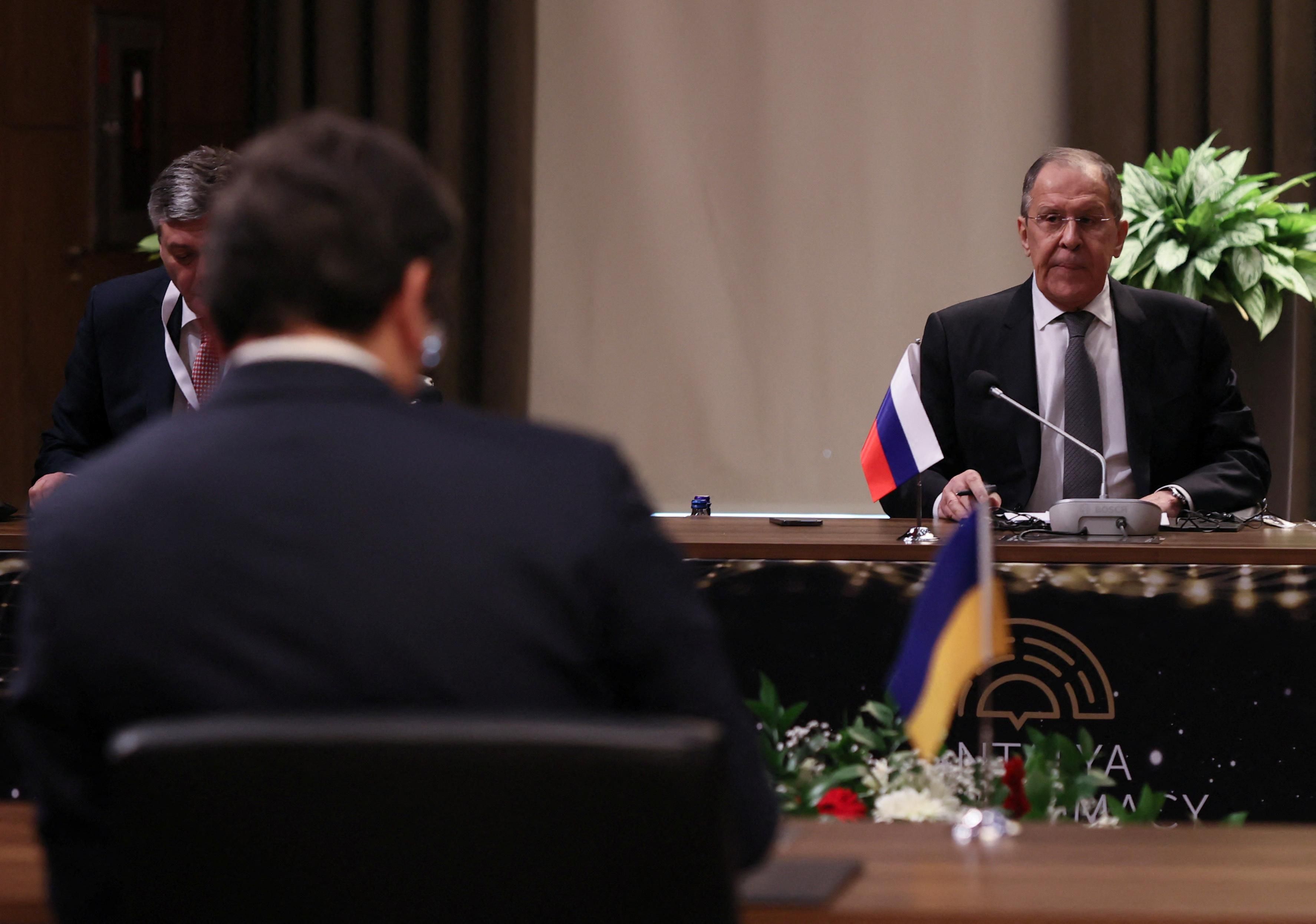What We're Watching: Russia-Ukraine peace talks, EU & US fight inflation, Indian state elections
Ukraine peace talks fail, Putin pushes back
In the highest-level peace talks since the start of the war, Russia and Ukraine’s top diplomats met on Thursday in Turkey but failed to secure an agreement. The Ukrainians say the Russians refused a brief ceasefire to allow for evacuations of civilians from besieged cities. Russia, meanwhile, pointed fingers at Ukrainian “radicals” for occupying the Mariupol children’s hospital that was bombed on Wednesday. President Vladimir Putin, for his part, banned the export of Russian products to 48 countries in response to Western sanctions. The ban is largely symbolic as it excludes commodities such as oil and natural gas as well as minerals, wheat, and raw materials for fertilizer, all of which could make global prices soar further if the Kremlin removes them from the market. Separately, Russia also unveiled a new accelerated bankruptcy scheme for departing companies, stopping just short of nationalizing them altogether (for now). It seems Putin wants to keep some of his powder dry in case European countries decide to join the US ban on Russian oil imports, or more foreign corporations abandon the country.
Inflation soars, ECB shocks with bond-buying halt
All eyes are on inflation. The European Central Bank on Thursday decided to hold interest rates steady — for now — but surprised analysts by noting that it will end its bond-buying program by September, quicker than anyone expected. Steps to reverse its easy monetary policy reflect concern over inflation, currently nearly 6% in the eurozone. The quicker the ECB ends its stimulus program, the sooner it can begin increasing interest rates to tamp down inflation, which is expected to rise further amid the Ukraine crisis. Meanwhile, annual US inflation rose to 7.9% in February, the highest rate since 1981. Surging gas prices are largely to blame but are unlikely to stop climbing anytime soon. The US Federal Reserve will likely announce interest rate hikes to combat inflation as early as next week.
